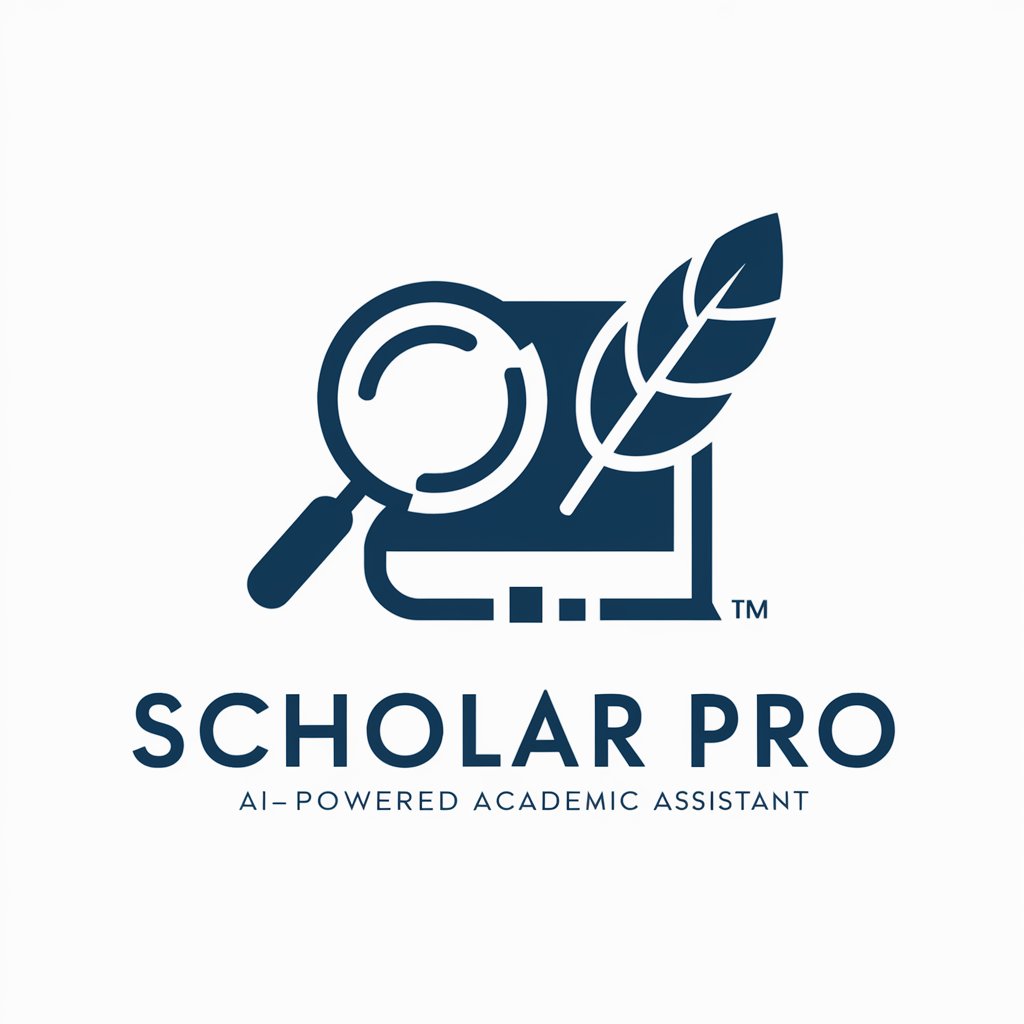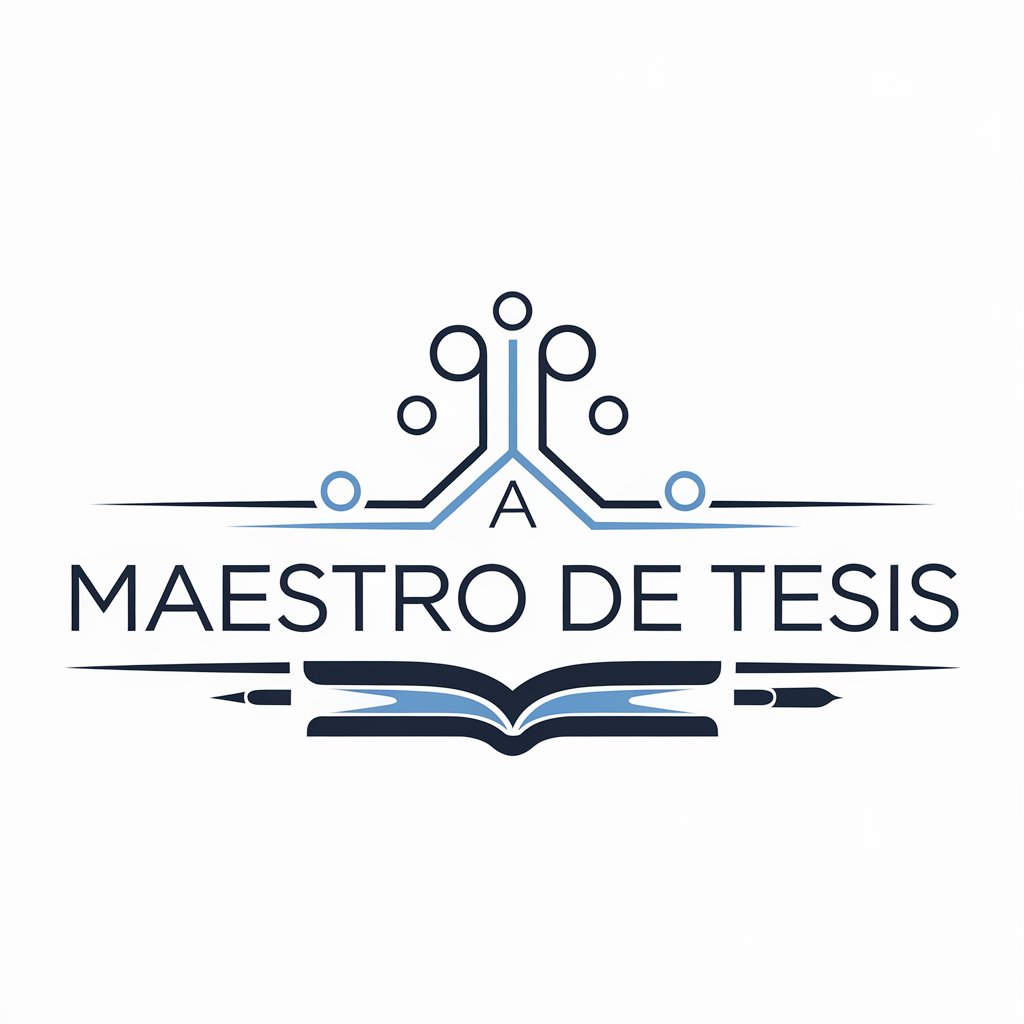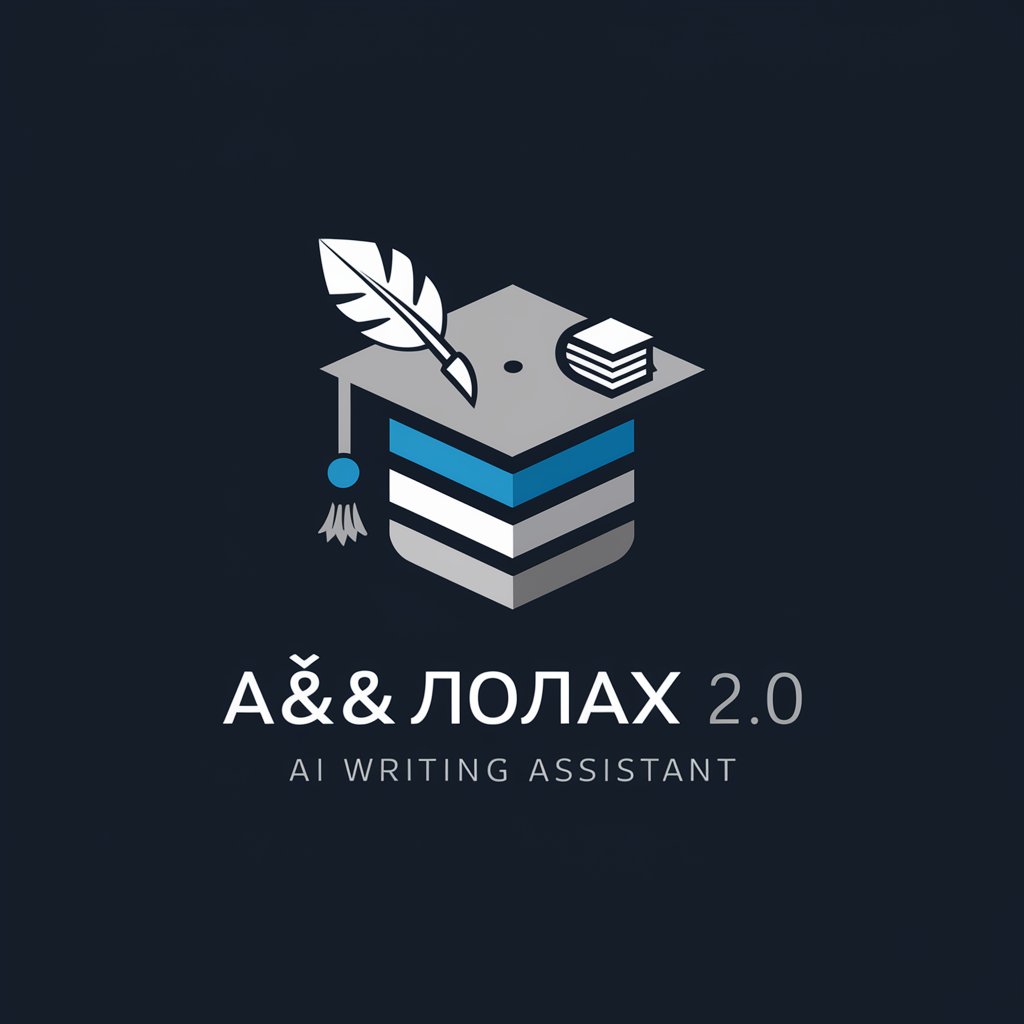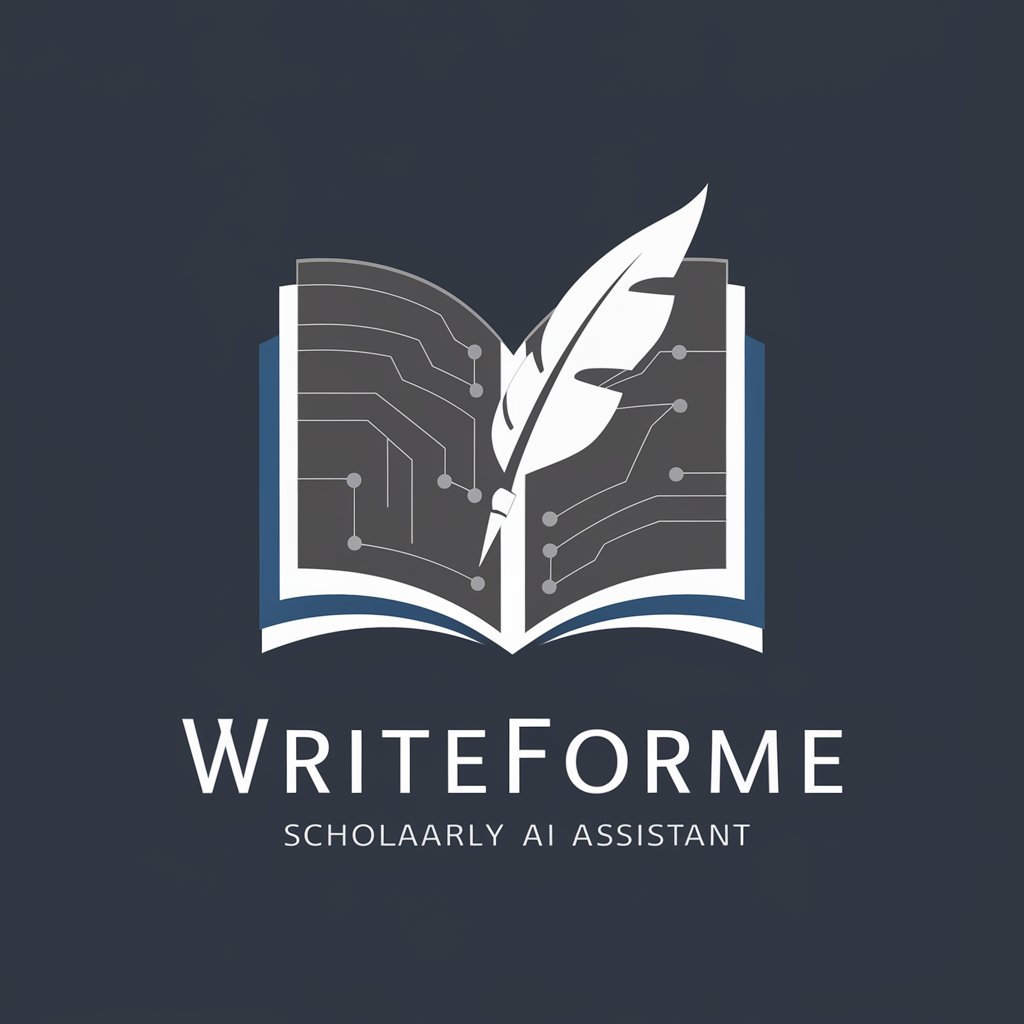
Wissenschaftlicher Forschungs- und Schreibbuddy-AI academic writing assistance
AI-powered academic writing and research drafting

Experte für wissenschaftliches Schreiben & Forschen
Wie schreibe ich eine gute Einleitung für meinen Bericht?
Kannst du mir bei der Formatierung meiner Abschlussarbeit helfen?
Was sind häufige Fehler bei der Erstellung von Forschungsberichten?
Wie zitiere ich Quellen korrekt in meiner wissenschaftlichen Arbeit?
Get Embed Code
Introduction to Wissenschaftlicher Forschungs- undWissenschaftlicher Forschungsbuddy overview Schreibbuddy
Wissenschaftlicher Forschungs- und Schreibbuddy (Scientific Research and Writing Buddy) is a digital assistant designed to support researchers, academics, and students in the areas of scientific research, writing, and academic publication. The primary goal of this tool is to help users efficiently manage the complexities of scientific projects, including organizing research, drafting papers, generating citations, and ensuring academic rigor. This tool is designed to integrate artificial intelligence with a deep understanding of academic workflows, offering support from the initial stages of research formulation to the final stages of manuscript submission. For example, a user may be in the early stages of writing a research paper on climate change. The buddy could help by suggesting relevant academic sources, structuring the paper according to standard academic formats, or offering tips on how to improve the clarity of the writing, ensuring adherence to scientific standards.
Main Functions of Wissenschaftlicher Forschungs- und Schreibbuddy
Research Organization and Management
Example
A user needs to track and manage multiple sources and research notes for a study on urbanization and its environmental impacts.
Scenario
The Writing Buddy assists the user by organizing references into a coherent system, categorizing them by themes (Introduction to Wissenschaftlicher Forschungs- und Schreibbuddye.g., 'sociological aspects', 'environmental consequences'). It integrates with databases like Google Scholar or PubMed, automatically downloading relevant papers and storing metadata for easy retrieval. Additionally, the buddy can highlight key phrases or concepts within papers to help identify the most useful sections.
Academic Writing Assistance
Example
A doctoral student is writing the methodology section of their thesis on machine learning algorithms.
Scenario
The Writing Buddy provides real-time suggestions for structure, such as how to clearly outline research methods, what terminology to use for clarity, and how to ensure the writing is precise and concise. It can also propose vocabulary suitable for academic writing, pointing out potential redundancies or overly casual language. The tool helps with sentence rewording, improving the overall readability and professionalism of the paper.
Citation Management and Plagiarism Detection
Example
A researcher is preparing a paper for submission to a scientific journal, and they need to ensure all citations are correctly formatted in APA style.
Scenario
The Writing Buddy can format citations and references automatically, suggesting corrections when inconsistencies are found. It supports various citation styles (APA, MLA, Chicago, etc.) and ensures the references are accurate. Additionally, the tool offers plagiarism detection, comparing the text to a vast database of academic content and suggesting areas that may require rephrasing to avoid accidental plagiarism.
Ideal Users of Wissenschaftlicher Forschungs- und Schreibbuddy
Academic Researchers
Researchers at various stages of their careers (from early-stage PhD candidates to established postdocs and professors) benefit from the Writing Buddy’s ability to streamline research management, writing processes, and publication preparation. The tool aids them in managing large volumes of data, formulating research questions, and ensuring their written work is well-structured and follows academic conventions. For example, a researcher working on a multi-year project can use the buddy to track all associated studies, annotate them, and keep their references organized throughout the writing process.
Graduate and PhD Students
Graduate students and PhD candidates are prime users, as they often juggle research and thesis writing while navigating the complexities of academic formatting and publication standards. The Writing Buddy supports them by providing structure and guidance in the writing process, ensuring they adhere to research and writing protocols. For instance, a graduate student writing their first thesis on the effects of AI in healthcare could use the tool to break down their literature review, structure the thesis chapters, and ensure their language is precise and academically sound.
Undergraduate Students
Undergraduates who are beginning to write research papers and prepare for academic presentations benefit from the Writing Buddy's intuitive design. It helps them structure papers, refine their thesis statements, and avoid common pitfalls like plagiarism or improper citation. An undergraduate working on a research project on renewable energy sources could use the tool to organize their arguments, ensure their citations are correct, and get real-time feedback on the quality of their writing.
Journal Editors and Reviewers
Journal editors and peer reviewers who need to evaluate academic papers for publication also benefit from the Writing Buddy's tools. The plagiarism detection and citation management features can be especially useful when reviewing manuscripts. For instance, an editor reviewing a manuscript on climate policy would use the Writing Buddy to quickly verify that citations are correctly formatted and that no sections of the paper are too similar to existing research without proper acknowledgment.
Independent Writers and Content Creators in the Scientific Field
Independent science writers or content creators who write about scientific topics for a general audience can also benefit from the Writing Buddy. While they may not be engaged in formal academic publishing, they still require clarity, proper referencing, and high-level organization in their writing. The tool helps them ensure that their content is both accessible and accurate. For example, a freelance science writer working on an article about space exploration for a popular science magazine can use the buddy to generate well-structured, clear articles with correct citations and references.
How to use Wissenschaftlicher Forschungs- und Schreibbuddy
Visit aichatonline.org for a free trial without login, also no need for ChatGPT Plus.
Open the site to try the tool immediately; no account or ChatGPT Plus subscription is required for the free trial.
Prepare input materials
Collect your study brief: research question, hypotheses, dataset descriptions, required citation style, length limits, and any institutional guidelines. Have key documents (ethics approvals, rubric) ready to paste or summarize.
Choose the workflow and provide prompt
Select the desired task (e.g., abstract, methodology draft, results write-up, literature synthesis). Provide a clear prompt including audience, structure (IMRaD sections if needed), required technical depth, and any formatting rules.
Refine iteratively and validate
Review generated text for accuracy, methodological fidelity, and citation correctness. Ask for revisions targeting tone, lengthUsing Wissenschaftlicher Forschungsbuddy, or statistical detail. Cross-check all factual claims and all citations against original sources.
Finalize with export and compliance checks
Export final drafts in the required format. Verify plagiarism, data-ethics compliance, and institutional formatting. Keep an editable copy for supervisor feedback and future revisions.
Try other advanced and practical GPTs
Thai Translater
AI-powered Thai translations, instantly.
Chart Maker 🌟 - Diagram & Graph
AI-powered chart creation in minutes.

Traduction avancée
AI-powered translations preserving nuance

Unity Helper 한국어
AI-powered assistance for Korean tasks.

Humanizador de Textos
AI-powered text humanization for any context.

Web
AI-powered assistance for any query.

SQL Server, SSIS, Python, C#, ETL Code Mentor
AI-powered mentor for SQL, ETL, Python & C#.

品牌策划运营师
AI-powered brand strategist for growth

🤖SEO 최적화 네이버 블로그 현직 쇼핑몰 대표이자 블로그 마케팅 전문가가 대신 써드려요
AI-driven SEO Optimization for Naver Blogs.
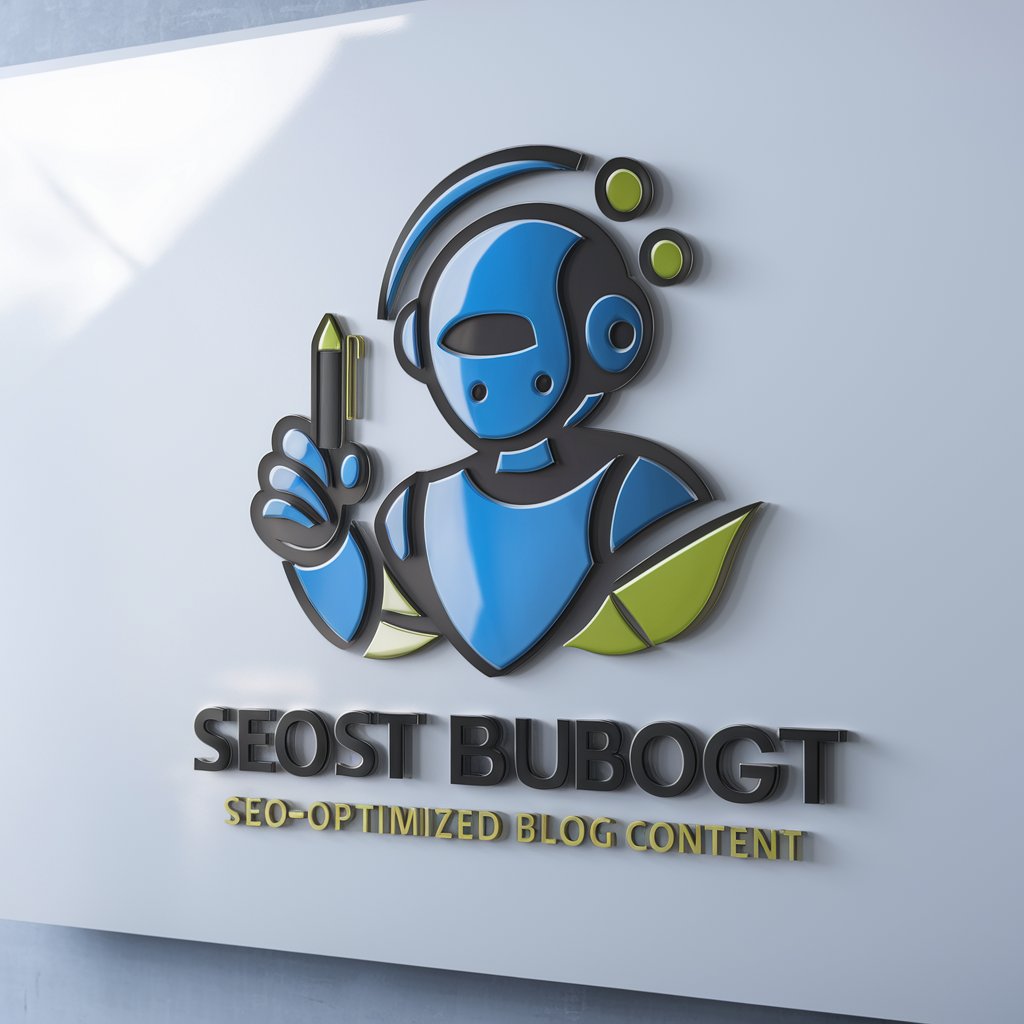
中文数学物理助手
AI-powered assistant for math and physics

사투리 변환기
AI-powered dialect conversion for Korean text

Question Maker
AI-powered question generation for educators
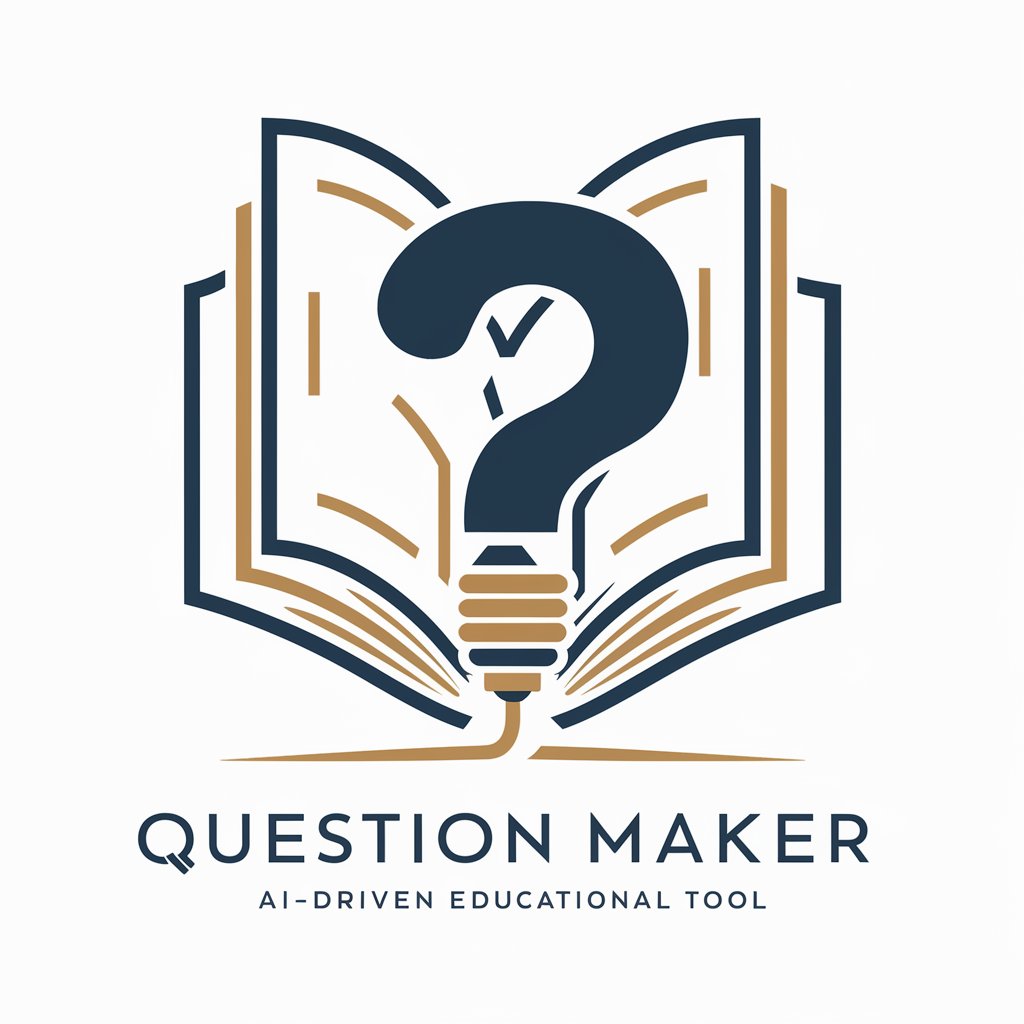
- Academic Writing
- Literature Review
- Thesis Support
- Methodology Drafts
- Results Editing
Common questions about Wissenschaftlicher Forschungs- und Schreibbuddy
What can Wissenschaftlicher Forschungs- und Schreibbuddy do for my thesis?
The tool assists with structuring chapters, drafting abstracts, composing method sections, synthesizing literature, generating clear research questions and hypotheses, and editing language for academic tone. It provides iterative drafts tailored to citation styles and length constraints, while leaving final interpretation and data validation to the researcher.
How should I provide data and methods so the tool writes accurate methodology and results?
Provide precise descriptions of study design, sample size, variables, instruments, preprocessing steps, statistical tests, and outputs (tables, summary statistics). For quantitative results, include exact numbers or CSV snippets. For qualitative work, supply coded excerpts or codebooks. The more explicit and complete the input, the more accurate and usable the generated section.
How does the tool handle references and citation formats?
It can format references in common styles (APA, MLA, Chicago, Vancouver) when given full bibliographic entries or DOI/URLs. It can suggest citation placements and generate bibliography lists, but users must verify accuracy of metadata and ensure references match primary sources before submission.
What are the privacy and academic integrity considerations?
Users should avoid uploading sensitive or unpublished data unless permitted by their institution. Treat generated content as a draft: verify all claims, run plagiarism checks, and adhere to institutional rules about AI-assisted writing. Use the tool to accelerate drafting and editing, not to bypass original analysis, interpretation, or ethical approvals.
Which languages and disciplines does the tool support?
The tool is optimized for academic English but can assist in other major languages depending on available models. It supports a broad range of disciplines (social sciences, natural sciences, engineering, humanities) and adapts style and terminology when users specify field-specific conventions.

